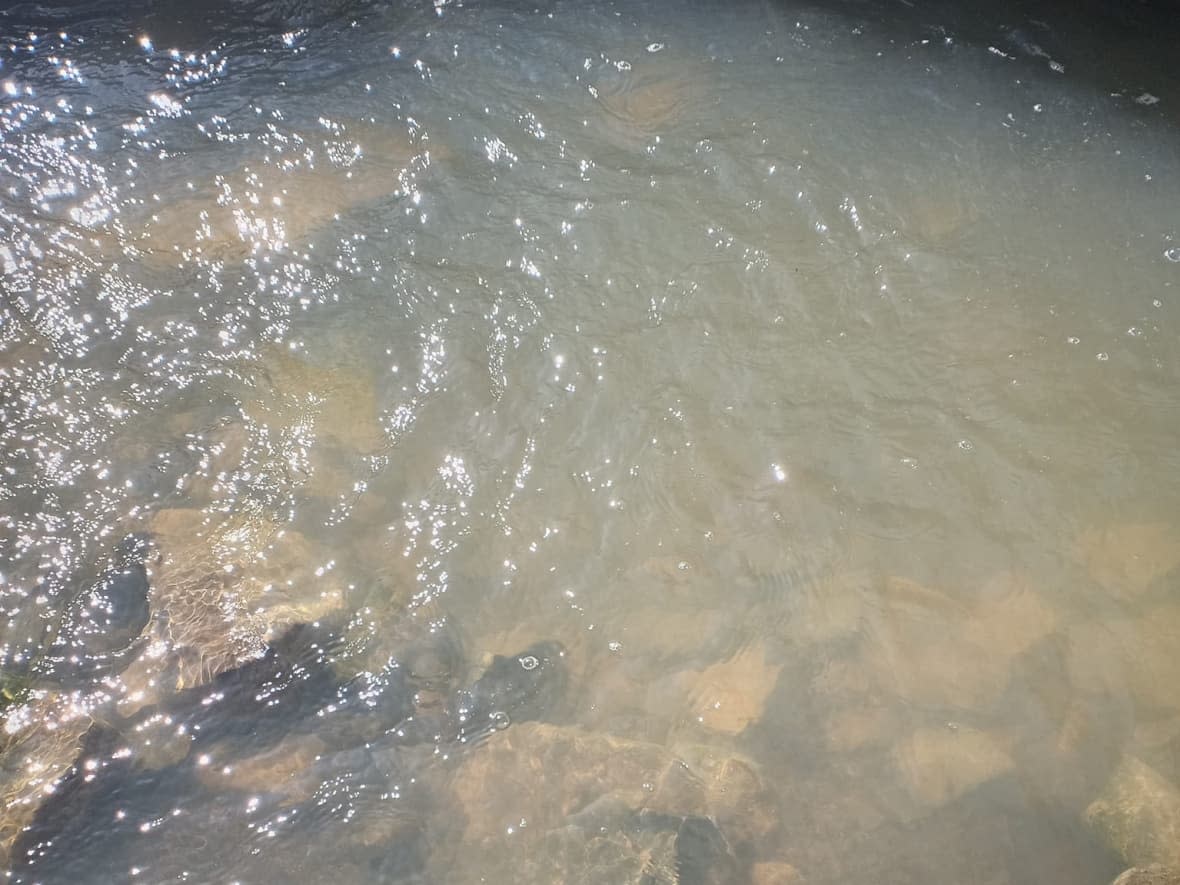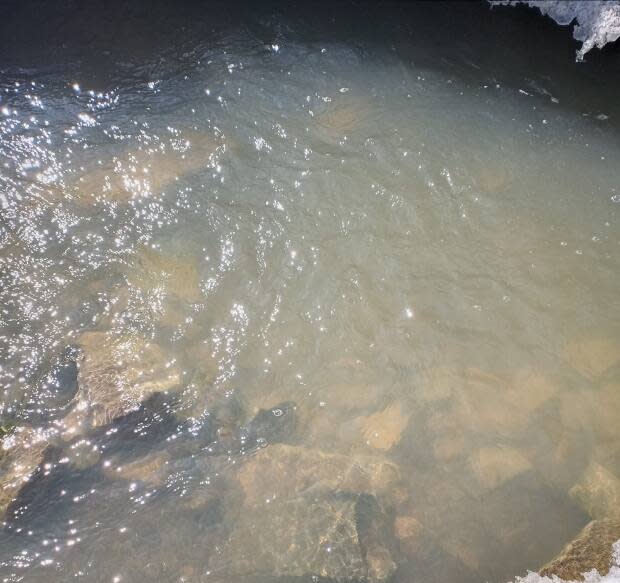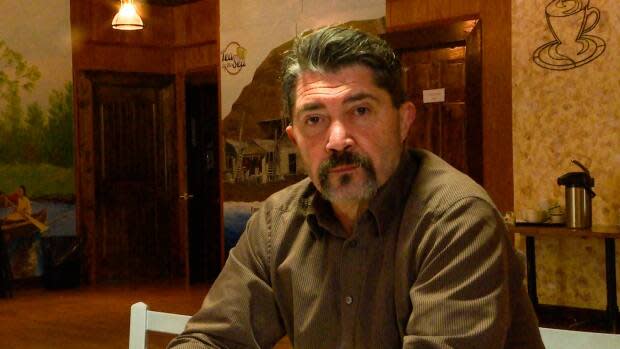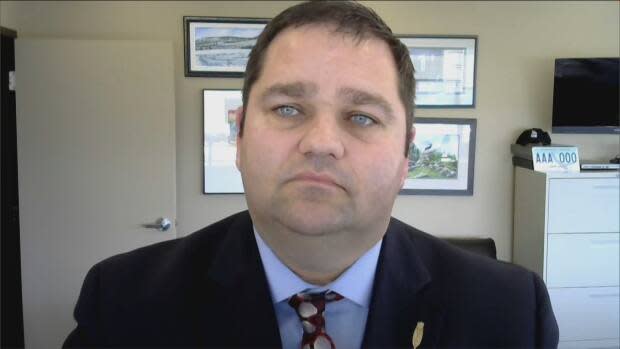Mainland has shut off its own water supply, calling it undrinkable. The government says it's fine


The local service district for Mainland, on Newfoundland's Port au Port Peninsula, has shut off its water supply, claiming it's undrinkable, and blaming the development of a wind energy project in the area.
Dwight Cornect, director of the local service district, says LeCointre's Brook, the community's secondary water source, is discoloured.
"The water is brown," Cornect said Thursday. He said he doesn't accept the government's assurances that the water has been tested and has no issues.
"They are telling us that based on water quality testing, that it is OK to pump the water from LeCointre's Brook. The LSD of Mainland does not agree."
Crown land near Mainland was identified as a site of a meteorological evaluation tower designed to collect data and help determine the future viability of a development by wind power company World Energy GH2.
But a group of Mainland residents is opposed to the construction of the tower, saying the road a contractor has cut to the area — which runs into LeCointre's Brook — is creating problems with their supplemental water supply.
Cornect says the town's primary source of water is dangerously low after a dry season, so the district committee decided to turn off the water in the community for three days due over worries the reservoir would be drained if current usage continued.
The lack of water forced the closure of the community's all-grade school, École Sainte-Anne, for much of the week, and the district committee is collecting donations to buy bottled water for its seniors in the meantime.
"Once we get down to six feet, we're facing issues because of sedimentation on the bottom," Cornect said. "We cannot let the reservoir get down to a point where what's going to come out is just what's really settling on the bottom."
Environment minister says concerns are unfounded
The provincial Environment and Climate Change Department Minister says it has been doing regular water testing and it's cleared for drinking.
"On four different occasions we've tested, the four tests have come back all underneath the parameters for the Canadian guidelines for drinking water," said Environment Minister Bernard Davis on Thursday.
"The only two things that were elevated were colour and turbidity, and both of those are esthetic in nature and have no impact on the safety of the drinking water."

The water was last tested in earlier this month after a resident reported a scent of hydrocarbon in the area, according to a statement from the provincial government, but water samples didn't reveal any problems.
Davis says the community has every right to make decisions on its water supply but he can only speak to the science provided by his department.
"From a science perspective, there's no reason why … residents should have any concerns," he said.

In a statement to CBC News, a spokesperson for World Energy GH2 said it was unaware of any reasons why the water would need to be shut off in Mainland.
"There are no known issues with LeCointre's Brook. We have been monitoring the brook daily and, for the past week, the brook has been clear," the statement reads, adding the district has refused to engage in discussions or accept offers of help with their overall water supply.
Cornect disputed World Energy GH2's version and challenged Davis to see what the water looks like first-hand.
"We know bad water when we see it," he said.
"Come out and see what we see. Like, let's not get bogged down in the facts or the stats or the readings. And let's make this about morals and ethics. There is a moral issue here. There's an ethical issue here, and do not just cast that aside."


